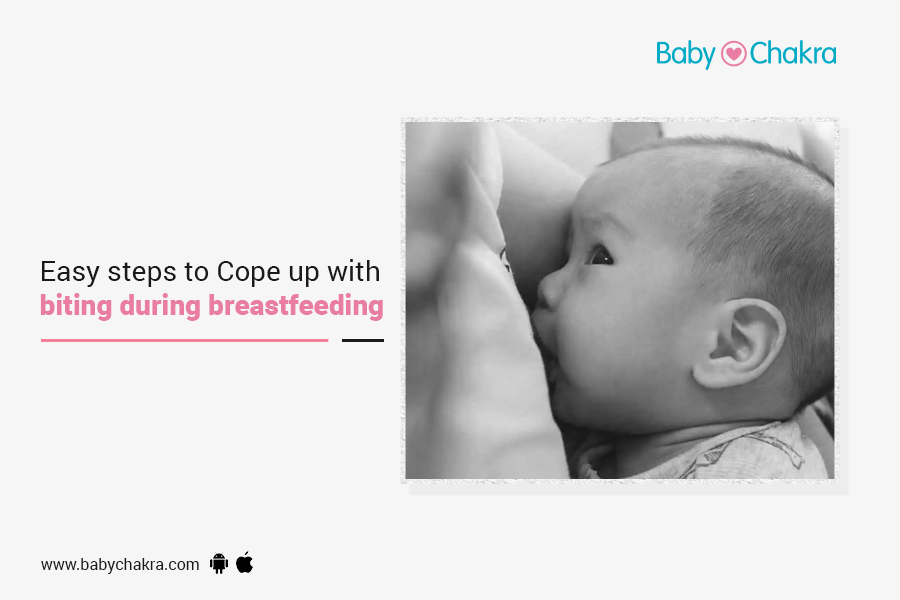
Easy Steps To Cope Up With Biting During Breastfeeding
28 Oct 2022 | 2 min Read
Seema Bhatia
Author | 29 Articles
Every mom might experience nipple biting at least once or twice while breastfeeding. Nipple biting during breastfeeding comes out of nowhere. There is no specific reason for your baby biting your nipple but it could be due to:
· Teething
· An attempt to get your attention
· Reflex to fast milk flow
· Irritation due to less milk flow
· Feeling of boredom
· When feeling unwell
Irrespective of what the reason may be behind doing so you should keep a few things in mind in order to cope with nipple biting.
The first thing to do when your baby bites your nipple tries not to scream or overreact as it might trigger them to bite it again out of fear or if they get upset. Be calm and avoid any reaction if possible.
Gently remove your little one from the breast by putting your figure in his/her mouth and detaching him/her from the breast. Another way to help your baby unlatch from your breast is by pulling the baby close to your breast leading to his/her mouth and nose getting covered totally. This will help them unlatch themselves easily without you trying to pull them out.
If nipple biting happens frequently when your baby is teething, give them a few alternatives like teethers, clean cloth, or toys to chew on so that they reduce nipple biting.
Lastly, in case of painful or damaged nipples due to the baby’s bite, rinse the nipple with saline immediately to soothe it. Try applying nipple cream on it if it has a cut or abrasion for faster healing. Cool packs can also be used to soothe the pain caused by biting.
Most importantly do not try nursing from the same side till it heals.
A


Related Topics for you
Suggestions offered by doctors on BabyChakra are of advisory nature i.e., for educational and informational purposes only. Content posted on, created for, or compiled by BabyChakra is not intended or designed to replace your doctor's independent judgment about any symptom, condition, or the appropriateness or risks of a procedure or treatment for a given person.
